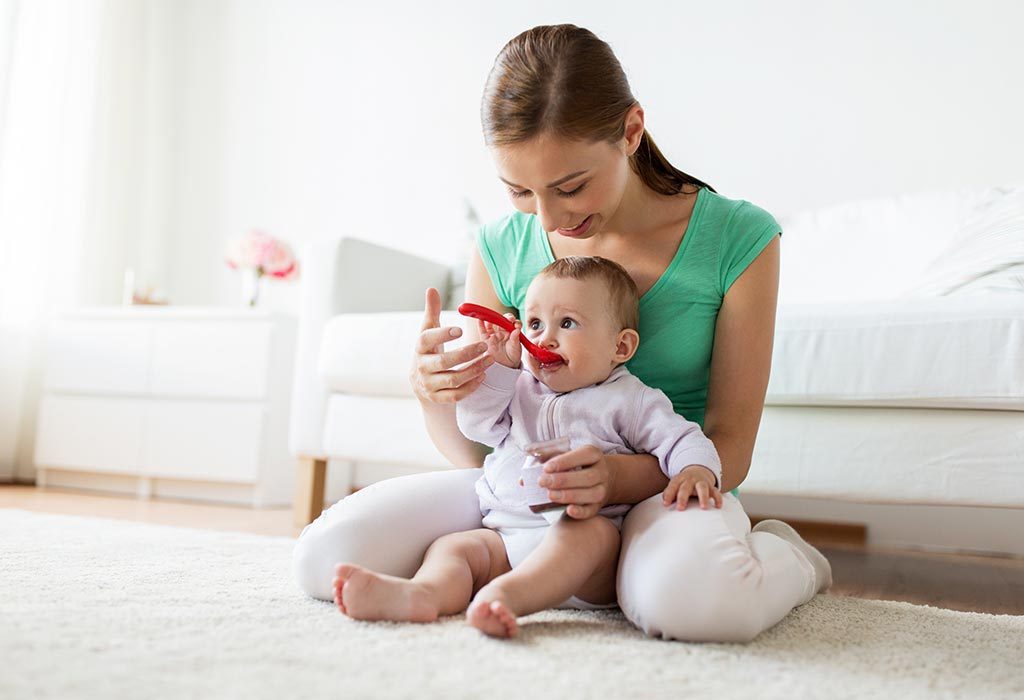In this Article
Vaccinations can be a tough time for parents, as they often feel helpless watching their baby cry. However, vaccinations help prevent babies from getting life-threatening diseases and are essential. One of the side effects of vaccination is fever. As a parent, you may not know what you should do in such a situation. Let’s find out how a fever after vaccination affects your child.
Is Post-Vaccination Fever Normal?
Some babies experience a high temperature after getting a shot, and this is normal. It means that your child’s immune system is responding to the vaccination. Hence, you shouldn’t be worried if your baby is down with a mild fever.
What Causes Fever After Vaccination in Infants?
Vaccination prevents diseases from infecting the body, by preparing the immune system to fight against a potential threat. The material in vaccines is made up of organisms (viruses/bacteria) causing an infection against which protection is required or expected. These organism’s ability to cause illness in the recipient is toned down. When the vaccine enters in the body, it activates immunity cells in the body, which in response to invasion by the organisms produce inflammatory markers, which, in turn, cause swelling and tenderness at the site of injection and fever in the body. So, fever is an indication of a good immune response of body.
What Are the Red Flags?
A temperature over 99°F is regarded as fever in children and it shouldn’t be ignored. Here are the signs you should look out for:
- 101°F or higher in babies younger than 3 months
- 102° F or higher in babies who are between 3- and 6-months-old
- Extreme fatigue
- Pain in the stomach, limbs, and ears
- Difficulty swallowing fluids
- Vomiting or diarrhoea
- Fever that persists for more than 3 days
- Drowsiness
Tips to Help Your Baby Deal With This Phase
Even though a fever after vaccination is normal, you would want to ensure your baby feels more comfortable and relaxed. Here’s what you can do:
-
Be There for Her
There’s nothing more than an infant wants than her parents’ love and care. Just be there for your child. Plan the day such that you get 3 to 4 hours with your child after vaccination.
-
Don’t Layer Clothing on Your Baby
Clothe your child in light and comfortable clothes. You can also cover with a soft blanket.
-
Give Her Plenty of Fluids
Fever dehydrates the body, so make sure you give her plenty of fluids to drink.

-
Keep Your Infant’s Room Well-Ventilated
Keep the windows open and let the fresh air in. The ideal temperature is 18° Celsius (65° F). You can also use a humidifier.
-
Try OTC Medication
You can try over-the-counter medication like paracetamol or ibuprofen if your baby is distressed and uncomfortable. Ibuprofen is equally safe and effective in babies less than 6 months and those older than 6 months. Compared to paracetamol, ibuprofen has more side effects in babies less than 6 months. Hence, it is advisable to use paracetamol to treat fever as the first choice and if it is not effective, ibuprofen could also be used alone or in addition to paracetamol.
In most cases, a post-immunisation fever will resolve on its own. However, it’s always better to follow your gut instinct, and contact your paediatrician if you feel something amiss.









